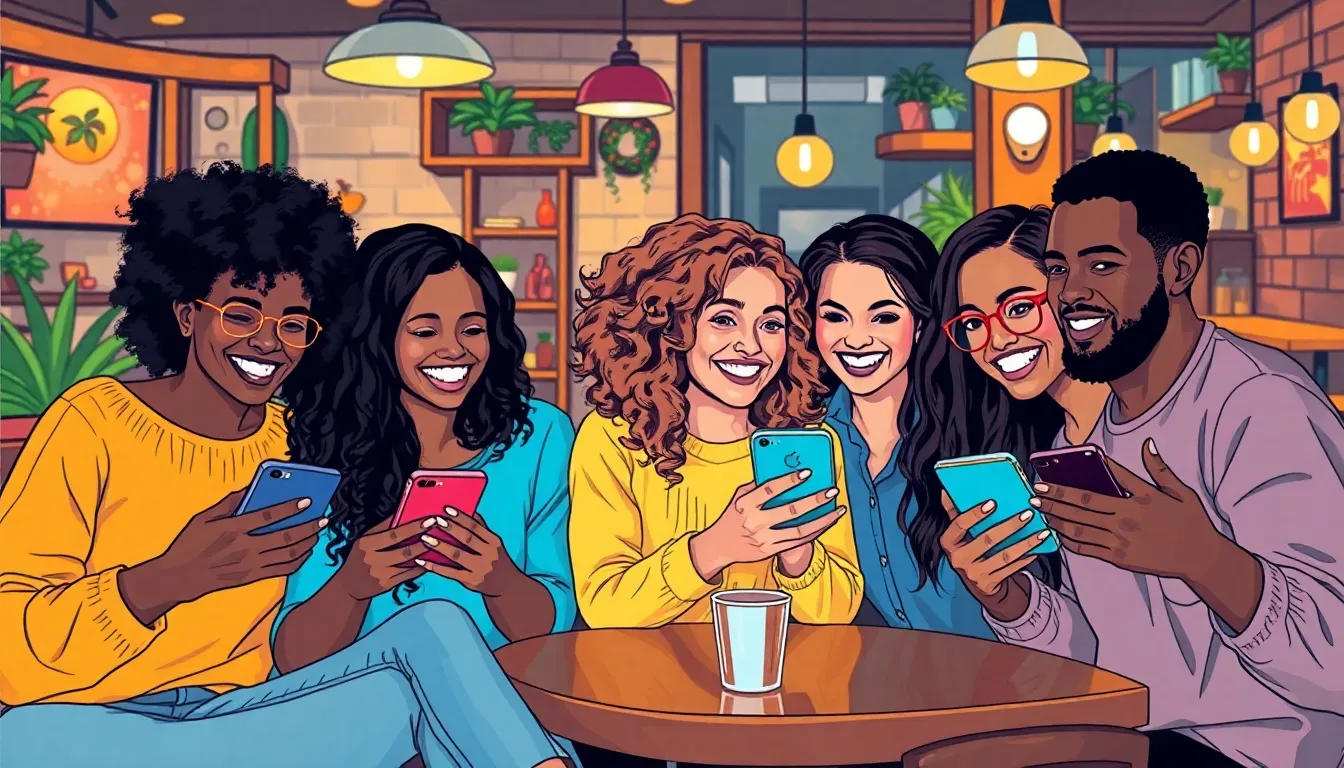In a world where scrolling through feeds has become a daily ritual, social media’s impact is nothing short of revolutionary. It’s not just a place for cat memes and vacation photos; it’s a powerful tool that shapes opinions, drives trends, and even influences elections. From influencers to everyday users, everyone’s got a voice—and sometimes it’s louder than a toddler in a candy store.
Table of Contents
ToggleOverview Of Social Media Impact
Social media’s influence permeates various aspects of life, significantly altering communication practices and spreading information rapidly. Platforms like Facebook, Twitter, and Instagram facilitate discourse, allowing users to share opinions, news, and trends with a global audience. Engagement metrics, such as likes, shares, and comments, create a feedback loop that amplifies popular content while reducing the lifespan of less engaging posts.
User-generated content shapes brand perception directly, putting pressure on companies to maintain transparency and authenticity. Influencers, with their vast follower bases, often sway consumer behavior, making collaborations an effective strategy for brands seeking visibility. Many users share experiences or recommendations, which can impact purchasing decisions and lifestyle choices among their peers.
Additionally, social media serves as a vital tool for political engagement and activism. Through hashtags and movements, individuals mobilize communities, raising awareness about social issues and pushing for change. Studies show that campaigns leveraging social media can reach millions, transforming local issues into global conversations.
Statistics affirm these trends; a report indicates that approximately 54% of social media users research products via these platforms before purchase. This statistic underscores the necessity for brands to optimize their social media presence. Fostering digital relationships enhances customer loyalty, further intertwining social media with consumer culture.
Social media’s dual role as a source of news and opinion formation complicates its impact. Users consume information filtered through personal biases, highlighting the importance of media literacy. As individuals encounter differing viewpoints, thoughtful engagement fosters understanding and bridges divides.
Positive Effects Of Social Media

Social media positively influences society by fostering connections and enhancing access to information.
Connection And Community Building
Social media platforms enable individuals to connect globally. Users share personal experiences, fostering supportive communities. Online groups often provide safe spaces for marginalized voices, strengthening social networks. Relationships formed online can translate into real-world friendships, enriching lives. Events and initiatives can gain traction through shared interests, allowing for communal participation. Engaging content draws people together, facilitating discussions that transcend geographic boundaries. As users interact, they cultivate mutual understanding and a sense of belonging.
Access To Information
Instant access to information characterizes social media’s impact. Users receive real-time updates on news, trends, and events. This immediacy allows for informed discussions and timely reactions. Sharing resources and articles fosters a culture of awareness and education. Users often find diverse perspectives on issues, driving critical thinking. Platforms frequently serve as conduits for expert opinions, enhancing knowledge across various fields. By democratizing information flows, social media empowers users to be more informed citizens.
Negative Effects Of Social Media
Social media has notable negative effects that impact users’ mental health and the spread of misinformation.
Mental Health Concerns
Social media usage correlates with increased anxiety and depression among users. Individuals often compare their lives to curated, idealized representations shared by others. Such comparisons can lead to feelings of inadequacy or low self-esteem. A study found that 60% of users report feeling pressure to present a perfect image online. Furthermore, constant exposure to distressing news stories and negative comments exacerbates feelings of isolation and stress. Regular engagement on social media may contribute to sleep disturbances, given the habit of scrolling late into the night. Strategies to mitigate these effects include setting screen time limits and curating content to promote positivity.
Spread Of Misinformation
Misinformation spreads rapidly on social media, creating significant challenges for users seeking reliable information. Algorithms prioritize engagement, often promoting sensational or misleading content over factual reporting. In fact, studies show that false information travels six times faster than true information on social platforms. Users frequently share articles or posts without verifying the sources, contributing to the cycle of misinformation. This can skew public perception on critical issues, such as health or politics. Promoting media literacy and critical thinking skills is essential to combat the effects of misinformation and encourages users to verify information before sharing it.
Social Media Impact On Businesses
Social media profoundly influences businesses, shaping their marketing strategies and customer interactions. Companies leverage platforms to reach wider audiences and enhance engagement.
Marketing Opportunities
Social media opens up diverse marketing opportunities for brands. Approximately 54% of users research products on social media before buying. This statistic emphasizes the importance of maintaining a strong online presence. Brands can use targeted ads to reach specific demographics based on user data. Additionally, influencer collaborations increase reach, tapping into the influencer’s established audience. Engaging content and creative campaigns can capture attention and promote brand loyalty. Metrics derived from engagement help refine marketing strategies, allowing businesses to adapt to consumer preferences effectively.
Customer Engagement
Customer engagement thrives on social media platforms. Users expect quick responses, with many preferring to interact via these channels rather than traditional customer service methods. Brands can foster community by actively responding to comments and messages, enhancing customer satisfaction. Live sessions or Q&A formats help build relationships and establish transparency. Additionally, user-generated content encourages authenticity, as real customers share their experiences. Companies that prioritize consistent engagement often see increased brand advocacy and customer retention. Ultimately, strong social media interaction creates lasting connections between businesses and their customers.
Social media’s influence is undeniable in shaping modern society. It serves as a platform for connection and expression while also posing challenges related to mental health and misinformation. The ability to engage with a global audience fosters community and promotes awareness around critical issues. However, users must navigate the complexities of online interactions with care.
Brands that adapt to this evolving landscape can effectively reach their audience and build lasting relationships. As social media continues to evolve its role in communication and information sharing, users and businesses alike must prioritize authenticity and media literacy. By doing so, they can harness the positive aspects of social media while mitigating its potential downsides.



